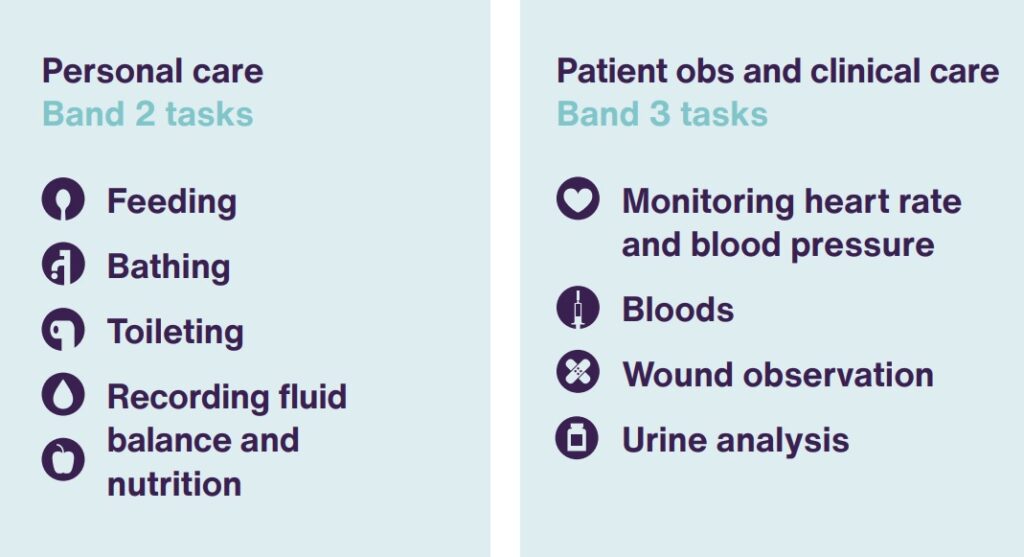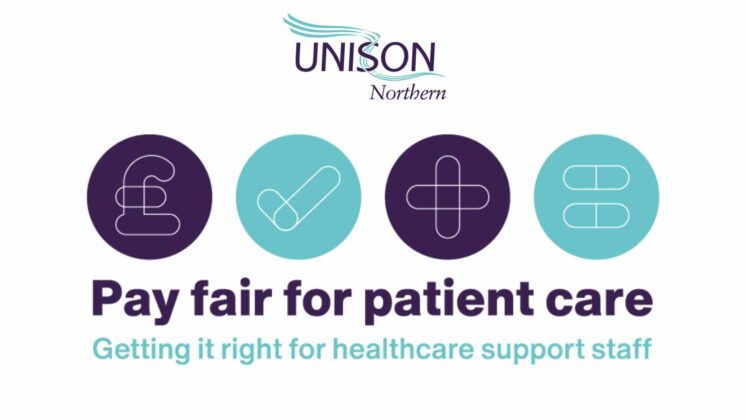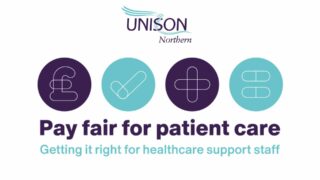Are you a band 2 healthcare support worker? You may be entitled to better pay…
Healthcare support staff work as part of the dedicated NHS team to deliver quality patient care. Over the years you’ve seen your role evolve and expand to take on more responsibilities, but without the pay and recognition to match.
While many healthcare support staff are on band 2 pay, some are performing clinical duties and patient observations – tasks which fall under band 3 of the Agenda for Change pay scales.
UNISON has pushed to have the bands of healthcare support workers reflect the jobs that they do and have been working with NHS trusts to regrade the roles correctly.
We now have new national job profiles that set out what the main tasks and differences are between bands 2 and 3.
What roles are classed as healthcare support workers?
There are many roles covered by this job group, a few examples are: healthcare assistant, endoscopy unit assistant, phlebotomist, radiography assistant, theatre support worker and van driver/laboratory assistant.
What are the differences between band 2 and 3?
While personal care remains a fundamental aspect of the healthcare support worker role, it’s undeniable that in many cases you are taking on more responsibilities than ever before.
Examples of band 2 and 3 tasks

How can you get involved?
UNISON’s campaign is all about speaking up about the realities of your job and working together to make sure you’re getting paid appropriately for what you do – so it’s vital that everybody gets involved!
- If you’re a healthcare support worker being paid at band 2 but taking on regular clinical duties, speak to your local UNISON rep/local branch office (contact your branch). You have the right to have your role reviewed and they can help to kickstart the process.
- Sign up to get involved and become a local rep or workplace contact.
- Participate in any rebanding campaign activity that might be taking place in your branch
- Ask your healthcare support colleagues to join UNISON. We’re stronger together!
- Get the support of other colleagues, including clinicians – the NHS is one team!



